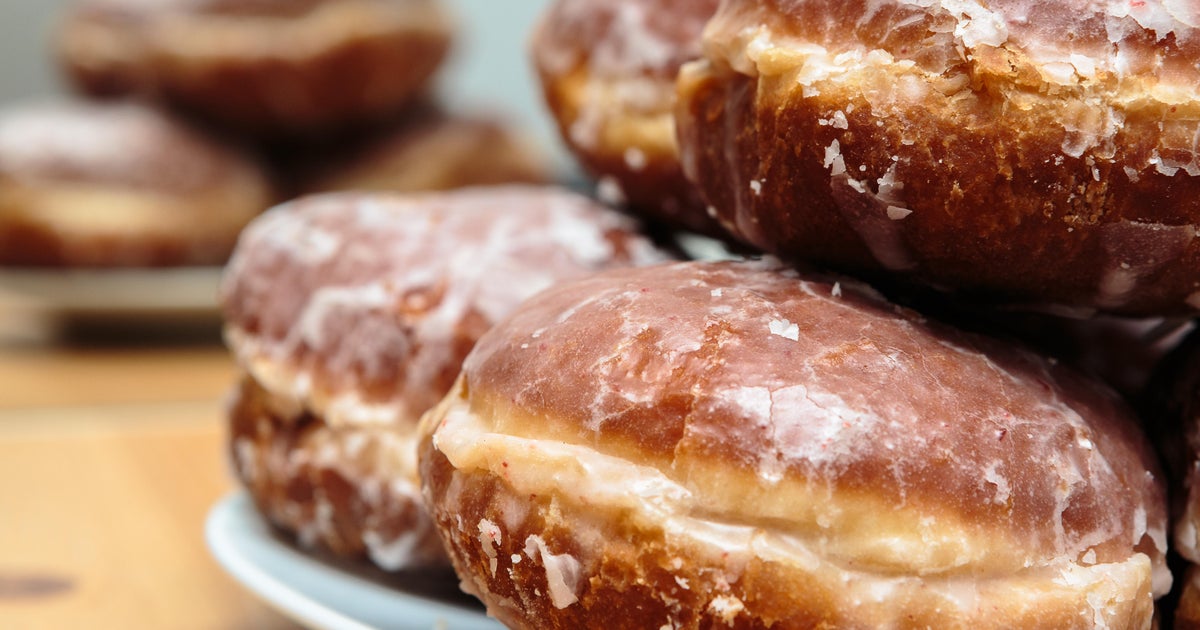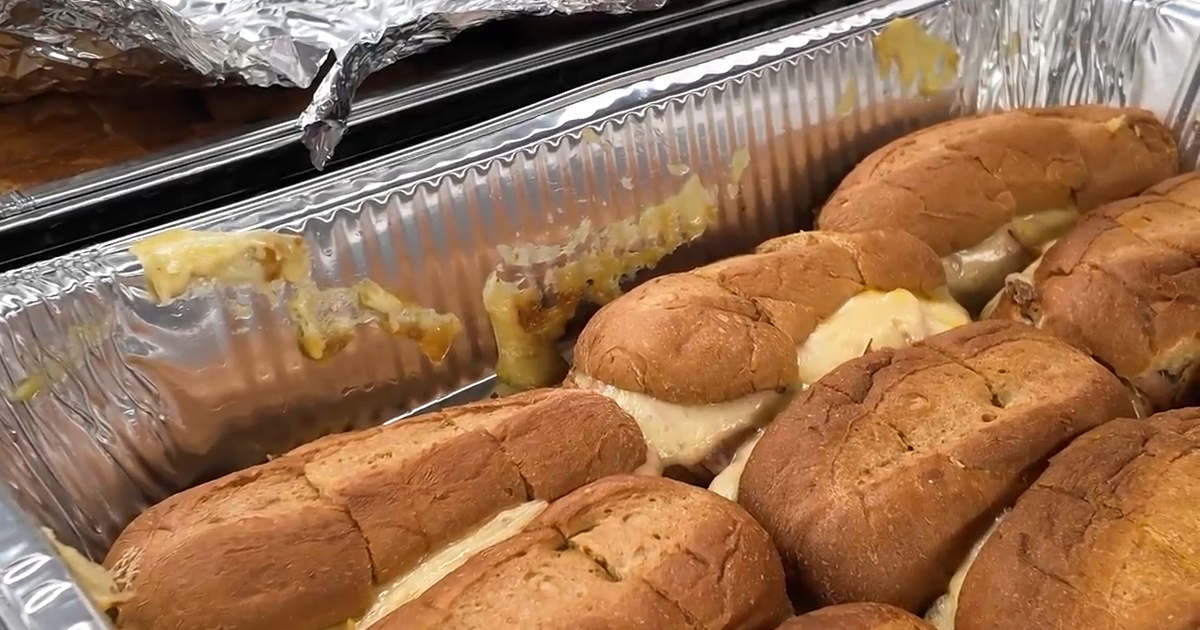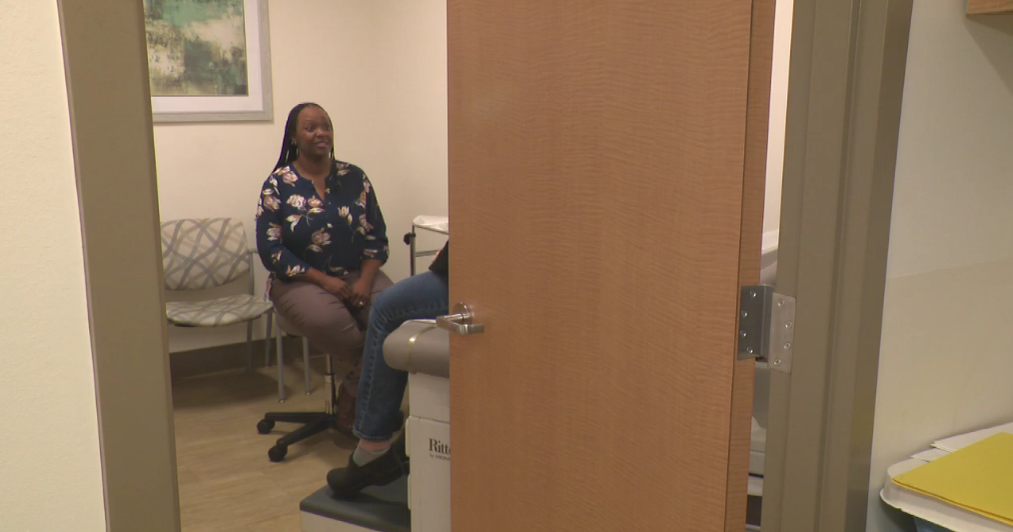Frozen Food Myths Debunked!
STUDIO CITY (CBSLA.com) — Save time, money and calories by eating frozen foods!
Alison Lewis, cookbook author and expert for the National Frozen & Refrigerated Foods Association, visited the KCAL9 studios Thursday to debunk some frozen food myths!
EXPIRATION DATES:
• Americans throw away 1/3 of all the food they buy, equaling 30 billion pounds each year. There are a few ways to help us minimize our food waste, starting with understanding what food expiration dates really mean.
• An "Expiration Date" refers to the last date a food should be eaten or used. After this date the food item is past it freshness peak and you should consider disposing of it.
FRUITS AND VEGETABLES:
• We all are aware, fruits and vegetables tend to spoil within the first week or so of purchase.
• For fruits and vegetables that last longer than a week, try buying frozen, such as these Pictsweet or Dole products. Frozen fruits and vegetables are picked at their peak of ripeness and flash frozen, "locking in" all their beneficial nutrients; and they will stay delicious in your freezer for eight months to a year, which helps minimize your food waste.
MEAT:
• Some products have a "Use by" date on the package. This date informs us of the recommended date to use the product by before the quality starts to diminish.
• Raw meats, such as chicken, fish and ground meat, will stay fresh in the refrigerator at 40 degrees or lower and should be used one to two days after they are purchased. Their frozen counterparts can be kept in the freezer two to three months, maintaining flavor and nutrients. For example, Tyson offers great frozen packaged uncooked chicken that will last up to six to nine months.
EGGS:
• Eggs usually have a "Sell by" date, which is the last day the product may be on the supermarket shelf (some eggs have the date etched right on them!). However, they will still be edible seven to 10 days afterwards.
• Store eggs in a cool, dry place, ideally in the fridge, away from other foods. Avoid storing eggs in the refrigerator door, where temperature fluctuates.
BREAD:
• Shelf life of bread depends on a variety of factors, such as the "Best By" date, which indicates that the quality of food might diminish after that date, but is still good to eat and the shelf life is still active.
• Mold is a common indicator for bread, as is excessive hardening of dryness. Do a squeeze test – if the bread is still soft, then you are safe.
• A baguette can be trickier – cut into it and if you see mold then you do not want to eat the bread.
• If the bread is stale, you don't need to toss it just yet – you can use it for stuffing, croutons, bread crumbs or bread puddings.
MORE INFO:
• Buying frozen foods helps us minimize the amount of spoiled food we throw away and saves us money in the long run.
• Many frozen foods are available in re-sealable bags or already portioned out for us, so we can just take what we need for a quick easy meal and save the rest for another time.
• These are only a few examples of frozen food options found in the freezer aisle. There are many different cuisines, including options that cover snack-time, breakfast, lunch, dinner, dessert, entertaining and specialty food occasions
• Frozen foods are not only a money saver but a time saver too – as the cleaning, picking, dicing, chopping and squeezing has already been done for you
• Frozen food is nutritious – it often gets a bad rap for being processed or "fake" but it's as nutritious or even more so than fresh because it's processed within hours of harvest, thereby "locking in" all vitamins and minerals
• Frozen foods start out the same as their fresh counterparts, coming from the earth and sea. They are picked at the peak of ripeness and flash frozen, sometimes right on the field, to lock in all the beneficial nutrients and keep them in their perfect, just-picked state. For example, most fish is frozen right on the boat shortly after it's been caught so there's no chance for decline in the quality, nutrition and freshness.
• The freezing process preserves nutrients in foods, making frozen foods a great alternative to fresh foods.
• Frozen foods are real food. The ingredients are picked in the field and prepared by chefs and the recipes are tested in a kitchen.
• Many options in the freezer aisle range from low-fat and organic to ultra-indulgent and everything in between, so people can choose the products that meet their tastes, needs and desires at that moment.
• Frozen fruits and vegetables can be less expensive and more convenient than their fresh counterparts.
• The addition of frozen foods can make the meal prep process a little quicker and give extra room for family time.







